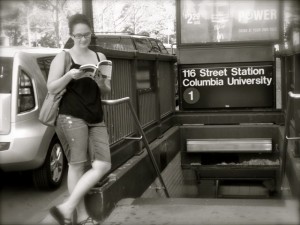It’s Saturday morning and I owe you myself a little bit more in the way of reflection on this past week (umm where did this week go? & I may never come back).
Let me start by saying, there is something crucial to writing, the way it helps us remember, process, and pause. One of the best parts of this week at Columbia may not have been the way I learned to teach my students, but rather the way I learned to teach myself.
In my morning class, with Sara Kugler, we focused on memoir. Memoir is different from personal narrative in that while a personal narrative is written from the perspective of the main character experiencing the event for the first time, a memoir is written from where the author is today looking back—it includes the truth of your experience.
Sara quoted Katherine Bomer often in class, which pretty much captured my heart from the beginning . . .
We write memoir to break the silence surrounding who we are.
We write memoir to awaken the I.
We write memoir to bear witness.
Maybe it was then that I realized I was in the right place. This is the writing my heart needs and fears at the same time. This is the writing my kids need me to show them. I would pay close attention. I would learn how to teach and pull from my kids. I would allow myself to be taught and pulled.
Then the assignment: go the places you don’t usually let yourself go.
I have to say it was hard for me, not hard like I really had to focus hard, hard like I sat for what felt like hours with pen in hand doing nothing but crossing out the previously written word.
But, just because something is hard or just because my pen wasn’t writing as fast as it normally does, doesn’t mean I wasn’t learning, doesn’t mean it wasn’t exactly what I needed.
To be continued . . .
